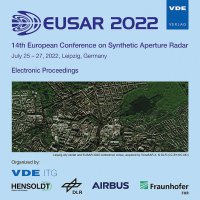Potential of Deep Learning in SAR Tomographic Inversion of Very Small Interferometric Stacks
Konferenz: EUSAR 2022 - 14th European Conference on Synthetic Aperture Radar
25.07.2022 - 27.07.2022 in Leipzig, Germany
Tagungsband: EUSAR 2022
Seiten: 6Sprache: EnglischTyp: PDF
Autoren:
Qian, Kun (Data Science in Earth Observation, Technical University of Munich, Germany)
Wang, Yuanyuan; Zhu, Xiaoxiang (Data Science in Earth Observation, Technical University of Munich, Germany & Department of EO Data Science, Remote Sensing Technology Institute, German Aerospace Center, Oberpfaffenhofen, Germany)
Inhalt:
SAR tomography (TomoSAR) has been extensively applied in 3-D reconstruction in dense urban areas. Compressive sensing (CS)-based algorithms are generally considered as the state-of-the-art methods in super-resolving TomoSAR, in particular in the single-look case. TomoSAR algorithms, including the CS-based ones, usually require a fairly large number of images to achieve a reliable reconstruction, because large error and especially bias occur in low number of measurements. In addition, CS-based algorithms are extremely computationally expensive due to their sparse reconstruction. These factors hinder their practical use. This paper demonstrates the potential of a novel and computationally efficient deep learning algorithm for TomoSAR on very small interferometric stacks. Investigation of the super-resolution ability shows that the proposed algorithm outperforms the state-of-the-art CS-based TomoSAR algorithm by a fair margin when limited acquisitions are available. Test on real TanDEM-X data with 6 interferograms also shows high-quality 3-D reconstruction.


